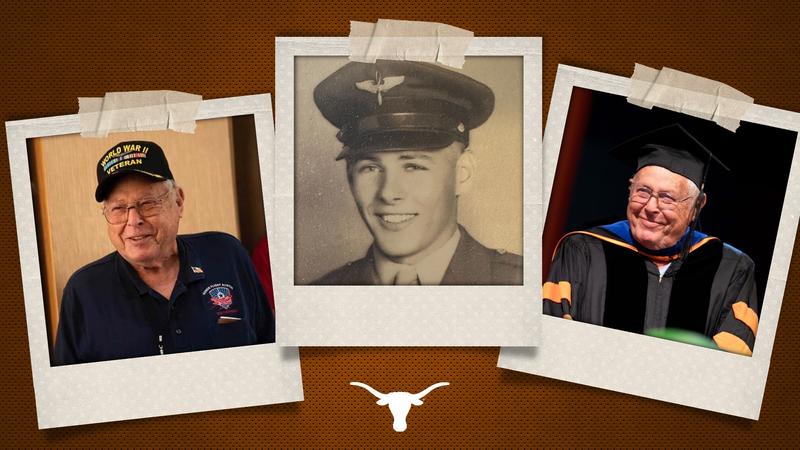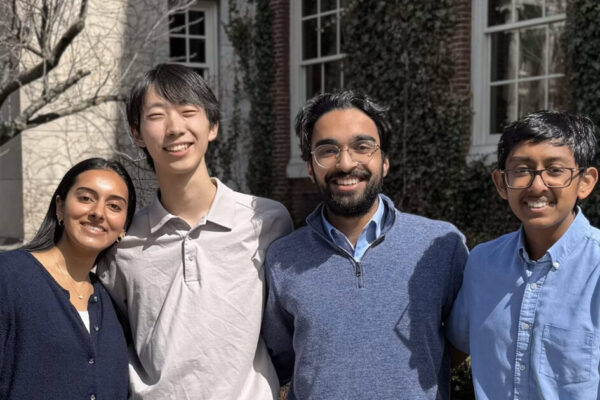Texas Lottery Veteran Recognition: Lew Griffith
Lew Griffith grew up in Austin, Texas during the early turn of the 20th century. As he approached high school graduation, the nation’s preoccupation with fighting World War II not only influenced Griffith’s education and career, but also paved the way for a life devoted to service and duty.
The attack at Pearl Harbor occurred during Griffith’s senior year of high school, and when he entered the University of Texas in 1942, Griffith joined the U.S. Army Air Corps Reserve program. He was called into active duty in 1943 as an aviation cadet and earned his pilot’s wings the next year. During World War II, Griffith flew 42 combat missions as a B-25 bomber pilot.
“At that time, your life was not your own because everything revolved around the timing of the war and how you would participate,” Griffith said.
During his time as a war pilot, he flew combat missions over northern Italy and southern Austria that targeted transportation systems, such as railroads and bridges, to disrupt Germany’s ability to supply troops.
Following the war, Griffith worked in construction and other jobs, and eventually completed his university degree in engineering. He developed his skill and talent for engineering as a young person, assisting his father, who was a graduate of West Point and certified professional engineer.
“I was a problem solver just by the way I grew up. It was part of my nature,” said Griffith, who will be inducted into UT’s Cockrell School of Engineering Academy of Distinguished Alumni later this fall. “I enjoyed meeting people and helping them with various situations.”
Griffith was called out of the reserves into the Air Force during the conflict in Korea, and his military occupation changed from pilot to engineer. He served at USAF headquarters in Europe as the chief bioenvironmental engineer, during which time he convened in Paris with NATO engineers to form the water and wastewater criteria for all NATO air bases; he also assisted leadership during the selection of new air bases in Europe and North Africa. Primarily, Griffith focused his time inspecting military bases to ensure service personnel were provided adequate work environments and life support activities.
“I pulled from all I knew – ventilation, design, engineering. It was fun work because I was learning a lot and helping people,” said Griffith, who also earned a master’s degree in engineering from the University of California at Berkley.
During his military career, Griffith served as chief bioenvironmental engineer in four different major commands, including Vietnam, and as chief medical construction liaison officer in the southeastern United States. Griffith retired after 27 years in the military and transitioned his problem solving and service orientation toward compliance and permitting roles with the Texas Water Quality Board; he also worked as deputy director for the solid waste management division of the Texas Health Department, which was tasked with writing new operational and permitting regulations and inspecting solid waste sites.
Griffith retired from the health department in 1987.
 Griffith also found joy and purpose by serving his community and building his family home in west Austin. Because of his experience in hospital construction, Griffith said he knew how to think like an architect, which allowed him and Hilda, his late wife of 67 years, to design a comfortable layout with a view of Lake Austin.
Griffith also found joy and purpose by serving his community and building his family home in west Austin. Because of his experience in hospital construction, Griffith said he knew how to think like an architect, which allowed him and Hilda, his late wife of 67 years, to design a comfortable layout with a view of Lake Austin.
In 1975, Hilda became president of the Austin Settlement Club, a charity that assists abused and neglected children, and under her leadership, the organization changed its fundraiser from a horse show to a garage sale, which is still in operation and nets more than $1 million annually. Since 1975, Griffith’s job has also been designing and building fixtures for the garage sale, which now fills the Palmer Events Center. His projects include exhibit fixtures, such as clothing racks, table toppers and storage carts, and throughout the year Griffith volunteers at the warehouse doing repairs and designing improvements to the workstations.
“Hilda was my best friend and a major part of everything I did and how I did it,” Griffith said. “Anyone who says there is no perfect person never met my wife. She made life pleasant for me and our family.”
Griffith, who is nearing 100, continues to reside on his family property in Austin and tends daily to his workshop and garden.
Thanks to the Texas Lottery, great things are happening all across Texas. The Texas Lottery now consistently contributes more than $1.6 billion of lottery revenue each year to good causes like public education and veterans’ assistance programs. Beginning with the first veterans’ dedicated scratch ticket game in 2009, the Texas Lottery has now contributed over $219 million to the Fund for Veterans’ Assistance.
Since 1992, the Texas Lottery has generated more than $37.5 billion in revenue for the state of Texas. Through strict adherence to their vision, mission and core values, the Texas Lottery is dedicated to ensuring that this support continues.













